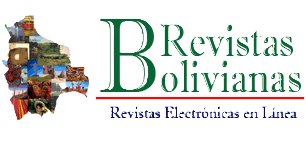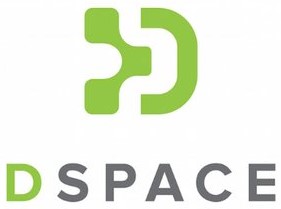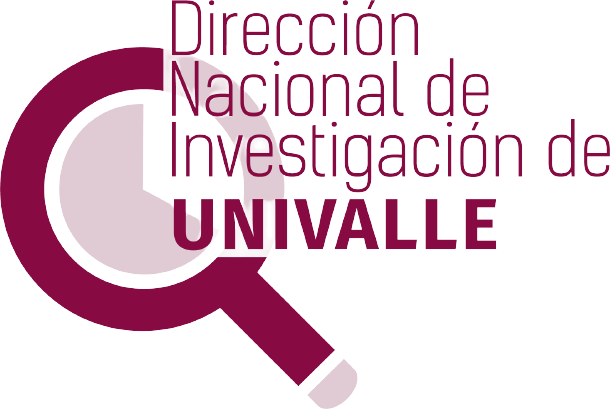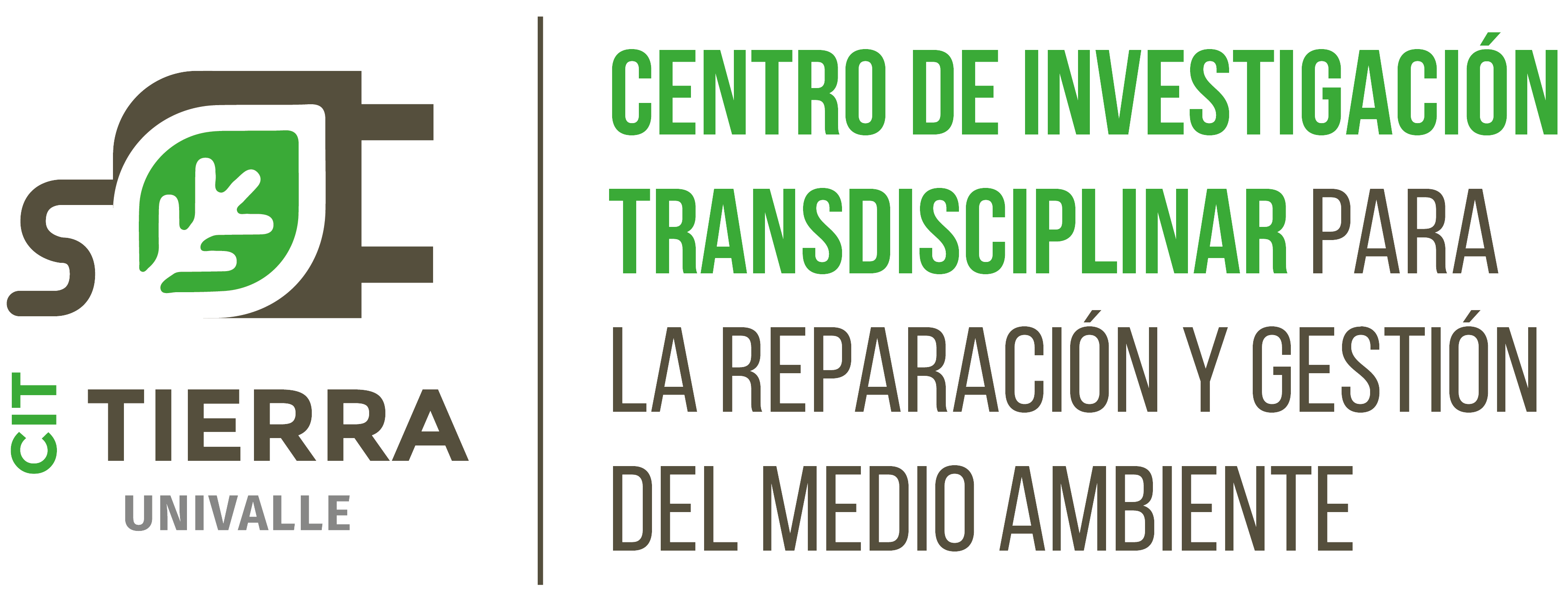Sobre el uso del dióxido de cloro en ámbitos de la salud humana y la importancia del razonamiento crítico
DOI:
https://doi.org/10.52428/20758944.v17i50.21Palabras clave:
COVID-19, Dióxido de cloro, Pruebas clínicas randomizadas, Razonamiento críticoResumen
Desde hace algunos años, productos como el dióxido de cloro, clorito de sodio y suplemento mineral milagroso (o MMS por sus siglas en inglés), a pesar de no haber sido certificados como medicamentos, están siendo utilizados de manera alternativa por muchas personas para el tratamiento de diferentes enfermedades. Este uso se ha visto incrementado durante la actual crisis por la pandemia por COVID-19. En este documento, se proporciona una lista no exhaustiva de publicaciones científicas y advertencias oficiales respecto al uso potencialmente peligroso de estos productos en el área de la salud humana. Toda la información citada es bien conocida por profesionales de ramas afines a la bioquímica y farmacéutica, pero no siempre es accesible al público en general. Además, se proporcionan elementos de razonamiento crítico para ayudar a la población en general a procesar la evidencia científica disponible y así construir una opinión propia e independiente
Descargas
Referencias
ABC News. (2016). Husband Says Fringe Church's 'Miracle Cure' Killed His Wife. ABC News. Retrieved 22 November, 2020, from https://abcnews.go.com/US/husband-fringe-churchs-miracle-cure-killed-wife/story?id=43081647
Abdel-Rahman, M. S., Couri, D., y Bull, R. J. (1982). Metabolism and Pharmacokinetics of Alternate Drinking Water Disinfectants. Environmental Health Perspectives, 46(19-23). https://doi.org/10.1289/ehp.824619
Agency for Toxic Substances and Disease Registry (1998). Toxic Substances Portal - Chlorine Dioxide and Chlorite. Dióxido de Cloro y Clorito, TOXFAQs. Retrieved 22 November, 2020, from https://www.atsdr.cdc.gov/es/toxfaqs/es_tfacts160.html
Arkes, H. R., y Ayton, P. (1999). The Sunk Cost and Concorde Effects: are humans less rational than lower animals?, Psychological Bulletin, 125(5), 591-600. https://doi.org/10.1037/0033-2909.125.5.591
Arnold, J., y Rushton, W. (2018, January). The mineral miracle disaster: accidental poisoning after use of 28% sodium chlorite solution resulting in methemoglobinemia and mild hemolytic anemia. Clinical Toxicology, 56(10), 941-942. https://doi.org/10.1080/15563650.2018.1506610
Arnstein, P., Broglio, K., Wuhrman, E., y Kean, M. B. (2011). Use of placebos in pain management. Pain Management Nursing, 12 (4): 225-9. https://doi.org/10.1016/j.pmn.2010.10.033
Atkins, P. W. (1986). Fisicoquímica. Addison Wesley.
Bathina, G., Yadla, M., Burri, S., Enganti, R., Prasad Ch, R., y Deshpande, P. (2013). An Unusual Case of Reversible Acute Kidney Injury Due to Chlorine Dioxide Poisoning. Renal Failure, 35(8), 1176-8. https://doi.org/10.3109/0886022x.2013.819711
BBC (2010). Firms fined £350,000 for chlorine dioxide death. BBC News. Retrieved 22 November, 2020, from https://www.bbc.com/news/uk-england-leicestershire-11409491
Bercz, J. P., Jones, L., Garner, L., Murray, D., Ludwig, D. A., y Boston, J. (1982). Subchronic toxicity of chlorine dioxide and related compounds in drinking water in the nonhuman primate. Environmental Health Perspectives, 46, 47-55. https://doi.org/10.1289/ehp.824647
Brenon-Audat, F., Busquet, C., y Mesnil, C. (1993). Thermodynamique chimique. Hachette: Paris.
Brocker, K. A., Nehls, K., Sohn, C., y Eichbaum, M. (2011). Massive Vaginal Epitheliolysis After Treatment of LSIL and Human Papilloma Virus with Chlorine Dioxide. Geburtshilfe und Frauenheilkunde, 71(6), 521-524. https://www.thieme-connect.de/products/ejournals/abstract/10.1055/s- 0030-1271145
Brockway, L. O. (1933). The Three-Electron Bond in Chlorine Dioxide. Proceedings of the National Academy of Sciences, 19, (3), 303-307. https://doi.org/10.1073/pnas.19.3.303
Burke, D., Zakhary, B., y Pinelis, E. (2014). Acute Hemolysis Following an Overdose of Miracle Mineral Solution in a Patient with Normal Glucose-6-Phosphate Dehydrogenase Levels. CHEST Journal, 146(4), 273A. https://doi.org/10.1378/chest.1988668
Bundesinstitut für Arzneimittel und Medizinprodukte (2015). Bundesinstitut für Arzneimittel und Medizinprodukte stuft zwei ’Miracle Mineral Supplement’-Produkte als zulassungspflichtig und bedenklich ein. Retrieved 22 November, 2020, from https://www.bfarm.de/SharedDocs/Pressemitteilungen/DE/2015/pm3-2015.html
Bundesinstitut für Risikobewertung (2012). BfR rät von der Einnahme des Produkts 'Miracle Mineral Supplement (MMS)' ab. Retrieved 22 November, 2020, from https://mobil.bfr.bund.de/cm/343/bfr-raet-von-der-einnahme-des-produkts-miracle-mineral-supplement-mms-ab.pdf
Bundesamt für Sicherheit im Gesundheitswesen (2020). Warnung vor Miracle Mineral Supplement MMS in der EU und Österreich. Retrieved 22 November, 2020, from https://www.basg.gv.at/warnung-vor-miracle-mineral-supplement-mms
Butler, T. (2017). The Jarisch–Herxheimer Reaction After Antibiotic Treatment of Spirochetal Infections: A Review of Recent Cases and Our Understanding of Pathogenesis. The American Journal of Tropical Medicine and Hygiene, 96(1), 46-52. https://doi.org/10.4269/ajtmh.16-0434
Carl Roth (2017). Planillas de datos de seguridad para el Clorito de sodio (Traducido del alemán). Carl Roth, Sicherheitsdatenblatt. Retrieved 22 November, 2020, from https://www.carlroth.com/medias/SDB-4352-DE-DE.pdf?context=bWFzdGVyfHNlY3VyaXR5RGF0YXNoZWV0c3wyNzM5MDZ8YXBwbGljYXRpb24vcGRmfHNlY3VyaXR5RGF0YXNoZWV0cy9oZWUvaDZjLzg5NDc4MTYyMDIyNzAucGRmfDkwY2UwMzk4Zjk0NGI2NTMyY2Q3NzJhN2M2MWU5OTk5ZGZlN2YzYWU4MThhMjI5NWJiMjQwZ
Carrione, E. I., y Genesis Foundation (2020). Determination of the Effectiveness of Oral Chlorine Dioxide in the Treatment of COVID 19. ClinicalTrials.gov Identifier: NCT04343742. https://clinicaltrials.gov/ct2/show/study/NCT04343742?term=chlorine+dioxide&draw=2&rank=1
Chaplin, S. (2006). The placebo response: an important part of treatment. Prescriber, 17 (5): 16–22. https://doi.org/10.1002/psb.344
Children's hospital of Philadelphia (2019). Dangerous Trend: Chlorine Dioxide and Autism. Center for Injury Research and Prevention. Retrieved 22 November, 2020, from https://injury.research.chop.edu/blog/posts/dangerous-trendchlorine-dioxide-and-autism
U.S. Department of Health and Human Services (2004). Toxicological profile for
chlorine dioxide and chlorit. Retrieved 22 November, 2020, from https://www.atsdr.cdc.gov/toxprofiles/tp160.pdf
Departamento de Salud y Servicios para Personas Mayores de New Jersey (2005). Hoja de informaciones sobre sustancias peligrosas. Retrieved 22 November, 2020, from https://nj.gov/health/eoh/rtkweb/documents/fs/0368sp.pdf
Dhakal, A., y Sbar, E. (2020, November 20). Jarisch-Herxheimer Reaction: a review. StatPearls [Internet]. Treasure Island (FL): StatPearls Publishing. PMID: 32491752 NBK557820
Deutsche Verbraucherzentrale (2020). Miracle Mineral Supplement (MMS): Erhebliche Gesundheitsgefahr. Retrieved 22 November, 2020, from https://www.verbraucherzentrale.de/wissen/lebensmittel/nahrungsergaenzungsmittel/miracle-mineral-supplement-mms-erhebliche-gesundheitsgefahr-11044
DiNardo, J. (2008). Natural Experiments and Quasi-Natural Experiments. In: Palgrave Macmillan (eds) The New Palgrave Dictionary of Economics. Palgrave Macmillan, London. https://doi.org/10.1057/978-1-349-95121-5_2006-1
Dobson, S., y WHO (2002). Chlorine Dioxide (Gas). International Chemical Assessment Document 37. Retrieved 22 November, 2020, from https://www.who.int/ipcs/publications/cicad/en/cicad37.pdf
Edgar, A., y Salek, S. (2002). Pharmaceutical Ethic. Wiley, 1st Ed
Enck, P., Klosterhalfen, S., Weimer, K., Horing, B., y Zipfel, S. (2011). The placebo response in clinical trials: more questions than answers. Philosophical Transactions of the Royal Society B, 366(1572), 1889-1895. https://doi.org/10.1098/rstb.2010.0384
Environmental Paper Network (2018). The state of the global paper industry. Executive Summary. Retrieved 22 November, 2020, from https://environmentalpaper.org/wp-content/uploads/2018/04/StateOfTheGlobalPaperIndustry2018_FullReport-Final-1.pdf
ERCO worldwide (2020). Safety Data Sheet. ERCO worldwide. Retrieved 22 November, 2020, from http://www.ercoworldwide.com/wp-content/uploads/SDSC-Chlorine-Dioxide-Solution.pdf
Everitt, B.S. (2002), The Cambridge Dictionary of Statistics, CUP. ISBN 0-521-81099-X
Fair Warning (2019). There’s Been an Uptick in the Use of the Crackpot Cure, Miracle Mineral Solution. Fair Warning. News of public health, consumer and environmental issues. Retrieved 22 November, 2020, from https://www.fairwarning.org/2019/09/theres-been-an-uptick-in-the-use-of-the-crackpot-cure-miracle-mineral-solution/
Flesch, R., Plenge, J., y Rühl, R. (2006). Core-level excitation and fragmentation of chlorine dioxide. International Journal of Mass Spectrometry, 249-250, 68-76. https://doi.org/10.1016/j.ijms.2005.12.046
Gebhardtova, A., Vavrinec, P., Vavrincova-Yaghi, D., Seelen, M., Dobisova, A., Flassikova, Z., Cikova, A., Henning, R., y Yaghi, A. (2014). A Case of Severe Chlorite Poisoning Successfully Treated with Early Administration of Methylene Blue, Renal Replacement Therapy, and Red Blood Cell Transfusion. Medicine, 93(9), p. e60. https://doi.org/10.1097/MD.0000000000000060
Gefährdung durch (2010). Gemeinsames Giftinformationszentrum. Gefährdung durch "Miracle Mineral Supplement" MMS. Retrieved November 22, 2020, from https://www.ggiz-erfurt.de/aktuelles-detail/miracle-mineral-supplement.html
Gilovich, T. D., Griffin, D., y Kahneman, D. (2002). Heuristics and Biases: The Psychology of Intuitive Judgment. New York, NY: Cambridge University Press.
Hagiwara, Y., y Inoue, N. (2015). First Case of Methemoglobinemia Caused by a ClO2-based Household Product. Pediatrics International, 57(6), 1182-3. https://doi.org/10.1111/ped.12708
Hariton, E., y Locascio, J. J. (2018). Randomised controlled trials - the gold standard for effectiveness research. BJOG: An International Journal of Obstetrics & Gynaecology, 125 (13), 1716-1716. https://doi.org/10.1111/1471-0528.15199
Harrington, R. M., Romano, R. R., Gates, D., y Ridgway, P. (1995). Subchronic Toxicity of Sodium Chlorite in the Rat. Journal of the American College of Toxicology, 14(1), 21-33. https://doi.org/10.3109/10915819509008678
Harris, A. D., McGregor, J. C., Perencevich, E. N., Furuno, J. P., Zhu, J., Peterson, D. E., y Finkelstein, J. (2006). The use and interpretation of quasi-experimental studies in medical informatics. Journal of the American Medical Informatics Association, 13(1), 16-23. https://doi.org/10.1197/jamia.M1749
Hulshof, P.B. J.E., Veenstra, J., y van Zwieten, R. (2018, September 19). Severe Hemolytic Anemia Due to Transient Acquired G6PD Deficiency After Ingestion of Sodium Chlorite. Clinical Toxicology, 57(1), 65-66. https://doi.org/10.1080/15563650.2018.1491984
In Bailar, J. C. (1953). Chlorine (IV) Oxide. Inorganic syntheses: Volume 4., 152-158.
Jim, H., y Lloyd, C. (1998). Ein gesundes Leben mit MMS (Vol. ISBN: 9789088791758). Jim Humble Verlag.
Kalcker, A. L. (2017). Gesundheit verboten (1st ed., Vol. ISBN: 978-9088791567). Humble, Jim Verlag.
Levine, I. N. (1981). Fisicoquímica. McGraw-Hill: Bogotá.
Lim, J. L., y Lim, P. K. (2009). Acute Sodium Chlorite Poisoning Associated with Renal Failure. Renal failure, 15, 645-8. https://doi.org/10.3109/08860229309069417
Loh, J. M., y Shafi, H. (2014). Kikuchi-Fujimoto disease presenting after consumption of 'Miracle Mineral Solution' (sodium chlorite). BMJ case reports 2014. https://doi.org/10.1136/bcr-2014-205832
Ma, J. W., Huang, B. S., Hsu, C. W., Peng, C. W., Cheng, M. L., Kao, J. Y., Way, T. D., Yin, H. C., y Wang, S. S. (2017). Efficacy and Safety Evaluation of a Chlorine Dioxide Solution. International Journal of Environmental Research and Public Health, 14, 329. https://doi.org/10.3390/ijerph14030329
MedWatch der Rechercher verschieben (2019). Tribunal Federal Alemán de Justicia confirma sentencia de prisión para vendedores de MMS. Bundesgerichtshof bestätigt Haftstrafe für MMS Verkäufer. MedWatch. Retrieved 22 November, 2020, from https://medwatch.de/2019/07/23/erloese-von-350-000-euro-bundesgerichtshof-bestaetigt-haftstrafe-fuer-mms-verkaeufer/
Mieli, A. (1945). Volta y el desarrollo de la electricidad. Espasa Calpe: Buenos Aires.
Ministerio de salud – Bolivia (2020). Comunicado documentado sobre dióxido de cloro. Retrieved 22 November, 2020, from https://www.minsalud.gob.bo/images/Descarga/covid19/COM-Dioxi-DOC.pdf?fbclid=IwAR3XXueEECYJ8kfKaZEdjqJj7gxvR6VhFHYWmKN-I7RrI36CuiT213OdL18
Moore, G. S., y Calabrese, E. J. (1980a). The effects of chlorine dioxide and sodium chlorite on erythrocytes of A/J and C57L/J mice. Journal of Environmental Pathology and Toxicology, 4(2-3), 513-524. https://pubmed.ncbi.nlm.nih.gov/7462915/
Moore, G. S., y Calabrese, E. J. (1980b). G6PD-deficiency: A Potential High-Risk Group to Copper and Chlorite Ingestion. Journal of Environmental Pathology and Toxicology, 4(2-3), 271-279.
Moore, G. S., Calabrese, E. J., Di Nardi, S. R., y Tuthill, R. W. (1978). Potential Health Effects of Chlorine Dioxide as a Disinfectant in Potable Water Supplies. Medical Hypotheses, 4(5), 481-496. https://doi.org/10.1016/0306-9877(78)90017-8
National Institute of Standards and Technology (2018). Chlorine dioxide. NIST Chemistry WebBook. Retrieved 22 November, 2020, from https://webbook.nist.gov/cgi/cbook.cgi?ID=10049-04-4
Nguyen, V., Hoffman, R. S., y Nelson, L. S. (2014). Chlorine dioxide from a dietary supplement causing hemolytic anemia. Clinical Toxicology, 52, 323. https://doi.org/10.3109/15563650.2014.906213
Nicolas, F.D. A.A., Mesonero, R., Molero, V., Nieto, M., Herreros, C., Ruiz, A., y Murillo, E.D.E. (2016). Irritant contact dermatitis from 'miracle mineral solution'. Journal of the American Academy of Dermatology, 74(5), 2757. https://doi.org/10.1016/j.jaad.2016.02.362
Nisbert, R. E., y Wilson, T. D. (1977). The halo effect: Evidence for unconscious alteration of judgments. Journal of Personality and Social Psychology, 35(4), 250-256. https://doi.org/10.1037/0022-3514.35.4.250
Nishikori, R., Nomura, Y., Sawajiri, M., Masuki, K., Hirata, I., y Okazaki, M. (2008). Influence of chlorine dioxide on cell death and cell cycle of human gingival fibroblasts, Journal of Dentistry, 36(12), 993-998. https://doi.org/10.1016/j.jdent.2008.08.006
Ogata, N., y Shibata, T. (2008). Protective effect of low-concentration chlorine dioxide gas against influenza A virus infection. Journal of General Virology, 88(1), 60-67. https://doi.org/10.1099/vir.0.83393-0
Oswald, A. (2020). Das neue MMS Handbuch - Gesundheit in eigener Verantwortung (9th ed., Vol. ISBN 978-3-9815255-0-2). Peter Daniel Verlag.
Pauling, L. (1988). General chemistry. Mineola, NY: Dover Publications.
Patat. (2011). Intoxication aiguë après ingestion de Solution Minérale Miracle (MMS) à base de chlorite de sodium. Journal de Pédiatrie et de Puériculture, 24(2), 109. https://doi.org/10.1016/j.jpp.2010.12.003
Petrucci, R. H. (2017). Química general: Principios y aplicaciones modernas. Madrid: Pearson Educación
Rivera, K. (2013). Healing the Symptoms Known as Autism (2nd ed., Vol. ISBN: 0989289044, 9780989289047). Amazon Digital Services LLC - KDP Print US.
Romanovsky, A., Djogovic, D., y Chin, D. (2013). A case of sodium chlorite toxicity managed with concurrent renal replacement therapy and red cell exchange. Journal of Medical Toxicology, 9(1), 67-70. https://doi.org/10.1007/s13181-012-0256-9
Sarrazin, J., y Verdaquer, M. (1989). L'oxydoréduction. Ellipse: Paris.
Sisler, H. H., Vanderwerf, C. A., y Davidson, A. W. (1959). General Chemistry. A systematic approach. Macmillan: Nueva York.
Stigler, S. M., (1997). Regression toward the mean, historically considered. Statistical Methods in Medical Research, 6 (2): 103-114. PMID 9261910. https://doi.org/10.1191/096228097676361431
Swadle, T. W. (1997). Inorganic chemistry: an industrial and environmental perspective (ISBN 0-12-678550-3 ed.). Academic Press. pp. 198-199.
Taylor, J. B. (2010). Toxicological Profile for Chlorine Dioxide (Vol. ISBN 1437930794, 9781437930795). DIANE Publishing.
Umweltbundesamt Deutschland (2011). Límite para la utilización de dióxido de cloro como desinfectante para el agua potable en Alemania (Traducido del alemán). Umweltbundesamt. Retrieved 22 November, 2020, from https://www.umweltbundesamt.de/sites/default/files/medien/3521/dokumente/trinkwasserdesinfektion_pruefung_der_wirksamkeit_von_desinfektionsmitteln.pdf
U.S. Environmental Protection Agency (2000). Toxical Review: Chlorine Dioxide and Chlorite. U.S. Environmental Protection Agency Washington, DC. Retrieved 22 November, 2020, from https://cfpub.epa.gov/ncea/iris/iris_documents/documents/toxreviews/0648tr.pdf
U.S. Food and Drug Administration (2019a). Fraudulent Coronavirus Disease 2019 (COVID-19) Products. Retrieved 22 November, 2020, from https://www.fda.gov/consumers/health-fraud-scams/fraudulent-coronavirus-disease-2019-covid-19-products
U.S. Food and Drug Administration (2019b). Danger: Don’t Drink Miracle Mineral Solution or Similar Products. Retrieved 22 November, 2020, from https://www.fda.gov/consumers/consumer-updates/danger-dont-drink-miracle-mineral-solution-or-similar-products#:~:text=The%20FDA%20warns%20you%20not,products%20can%20make%20you%20sick.&text=If%20you're%20drinking%20%E2%80%9CMiracle,sodium%20chlorite%20products%2C%20stop%20now
U.S. Food and Drug Administration (2020). FDA Warns Seller Marketing Dangerous Chlorine Dioxide Products that Claim to Treat or Prevent COVID-19. Retrieved 22 November, 2020, from https://www.fda.gov/news-events/press-announcements/coronavirus-covid-19-update-fda-warns-seller-marketing-dangerous-chlorine-dioxide-products-claim
Upton, G., y Cook, I. (2006) Oxford Dictionary of Statistics, OUP. ISBN 978-0-19-954145-4
Vogt, H., Balej, J., Bennett, J. E., Wintzer, P., Sheikh, S. A., Gallone, P., Vasudevan, S., y Pelin, K. (2010). Chlorine Oxides and Chlorine Oxygen Acids. onlinelibrary.wiley.com. https://onlinelibrary.wiley.com/doi/10.1002/14356007.a06_483.pub2
Williams, S. R., Dawling, S., y Seger, D. L. (2009). Severe hemolysis in pediatric case after ingestion of Miracle Mineral Solution. Clinical Toxicology, 47(7), 737. https://doi.org/10.1080/15563650903076924
World Health Organization (2020a). Guidelines on the implementation of the WHO certification scheme on the quality of pharmaceutical products moving in international commerce. WHO, Access to Medicines, Vaccines and Pharmaceuticals. Retrieved 22 November, 2020, from https://www.who.int/medicines/areas/quality_safety/regulation_legislation/certification/guidelines/en/
World Health Organization (2020b). Preguntas y respuestas sobre la enfermedad por coronavirus (COVID-19). Organización Mundial de la Salud. Retrieved 22 November, 2020, from https://www.who.int/es/emergencies/diseases/novel-coronavirus-2019/advice-for-public/q-a-coronaviruses
Descargas
Publicado
Número
Sección
Licencia
Derechos de autor 2021 Melanie Maldonado

Esta obra está bajo una licencia internacional Creative Commons Atribución 4.0.
Los autores/as que publiquen en esta revista aceptan las siguientes condiciones:
- Los autores/as conservan los derechos de autor y ceden a la revista el derecho de la primera publicación, con el trabajo registrado con la licencia de atribución de Creative Commons 4.0, que permite a terceros utilizar lo publicado siempre que mencionen la autoría del trabajo y a la primera publicación en esta revista.
- Los autores/as pueden realizar otros acuerdos contractuales independientes y adicionales para la distribución no exclusiva de la versión del artículo publicado en esta revista (p. ej., incluirlo en un repositorio institucional o publicarlo en un libro) siempre que indiquen claramente que el trabajo se publicó por primera vez en esta revista.
- Se permite y recomienda a los autores/as a compartir su trabajo en línea (por ejemplo: en repositorios institucionales o páginas web personales) antes y durante el proceso de envío del manuscrito, ya que puede conducir a intercambios productivos, a una mayor y más rápida citación del trabajo publicado.















